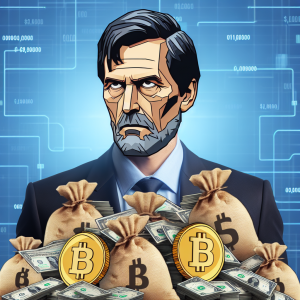Lessons From Mark Cuban - How to Invest Like a Frugal Student
Mark Cuban, who sold Broadcast.com to Yahoo for 5.7 billion dollars in 1999, tells newcomers that wealth arrives through thrift, not through hot tips. He built his fortune by founding MicroSolutions - selling it for six million dollars - repeating the process with Broadcast.com. Today he owns the Dallas Mavericks and stakes in dozens of startups, yet he still counsels ordinary wage earners to clip coupons, share apartments along with refuse every form of consumer debt.
Drive a fifteen-year-old sedan. Buy groceries with a debit card tied to a checking account that holds no overdraft protection. Sleep on a mattress found on a curb. Cuban kept five roommates in a three bedroom Dallas apartment during his twenties - the arrangement cut his rent to eighty seven dollars a month. Each dollar he did not spend on rent, beer, or gasoline went into a brokerage account that purchased shares of the Vanguard 500 Index Fund. The fund charges three basis points in annual fees - almost every cent of profit stays with the investor.
Once the emergency fund equals six months of bare bones expenses, Cuban tells savers to direct every surplus dollar into the same index fund - he calls the S&P 500 âthe only horse that never stops running.â Reinvested dividends purchase additional shares - additional shares generate more dividends. The cycle repeats for decades.
Speculation deserves no more than one tenth of liquid net worth. Cuban allocates that slice to bitcoin, ethereum, or a single angel investment in a local startup. He records the purchase - deletes the ticker from every watch list. If the position falls to zero, the loss never threatens rent, groceries, or retirement. If it multiplies by ten, he sells half and returns the proceeds to the index fund.
Cash talks louder than plastic. Cuban walks into independent electronics stores with a roll of twenty dollar bills and asks for a manager; he points to a display laptop, counts out the exact sticker price in worn notes, and waits. The manager almost always knocks ten percent off the tag to avoid credit card fees. Cuban repeats the tactic at flea markets, car dealerships in addition to dentist offices.
Bulk purchases turn small discounts into large reserves. When a pharmacy marks down two-hundred-count bottles of ibuprofen by fifty percent, Cuban buys twenty bottles. The stash fits in a single shoebox under his bed. Two years later he still has not returned to the pharmacy for pain relievers. The saved money sits in the index fund - compounding silently.
Experienced investors receive the same prescription. Cuban tells hedge fund managers to fire their research departments, cancel the Bloomberg terminal, and buy the index. He reminds them that ninety two percent of large cap fund managers underperform the S&P 500 over fifteen years. The remaining eight percent owe their edge to luck, not skill.
Wealth, in Cuban's view, is the gap between what a person earns and what that person spends. Expand the gap by any means necessary - negotiate every bill, cook every meal, ride the bus. Shrink the gap and the future shrinks with it. The formula never changes, no matter the size of the paycheck.

